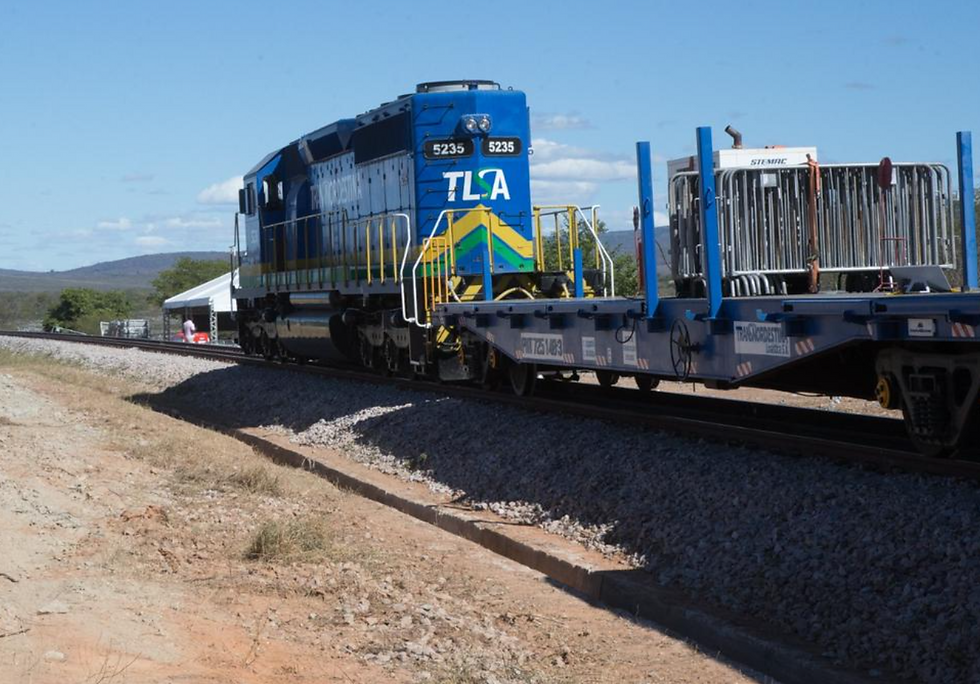Transnordestina: Rail as a Catalyst for Brazilian Growth
- Asteca Projetos RSV
- Jul 27
- 2 min read
Blesser Moreno — Master in Public Policy Evaluation and Business Logistics Specialist
Brazil is poised for a significant shift in its logistics strategy, with renewed focus and investment in its railway network, a move seen as critical for the nation's economic future. This comes after decades of prioritizing road transport over rail, a decision now widely acknowledged as a misstep with ongoing negative consequences for the country's extensive geography.

The current reliance on trucking, even for long-distance hauls like beef protein from Rio Grande do Sul to Pará, creates numerous bottlenecks, including delays, increased costs, higher risks, and significant losses. In this context, the revival of railway investments is presented not merely as an alternative, but as a strategic solution to these persistent logistical challenges. Brazil's rail network reached its peak around 1960, but since then, lack of continuous investment has led to a heavy dependence on road transport. Currently, less than a quarter of national production is transported by rail, with roads accounting for roughly 61.1% of total cargo.
The Transnordestina railway project is at the forefront of this paradigm shift. By connecting production hubs to maritime transport, it is expected to revolutionize logistics. The state of Ceará, with its two strategically located ports and strong development potential, is set to play a fundamental role in this process, advocating for prioritized funding for railways. The Transnordestina is more than just an infrastructure project; it's a public policy for regional integration that aims to transform Ceará's economy.
While there are projections for passenger transport, the primary demand and driver for development and investment between Pecém and Cariri are freight trains. This renewed focus on rail is a key component of the federal government's National Railway Plan (PNF), an ambitious initiative launched in June 2025 with an investment of R$138.6 billion. The plan aims to double the railway's share in Brazil's transport matrix from the current 20% to 40% by 2035. This strategic move is anticipated to reduce transportation costs by up to 30% and significantly contribute to the country's decarbonization goals, as rail transport emits 85% less CO2 than road transport.



Comments